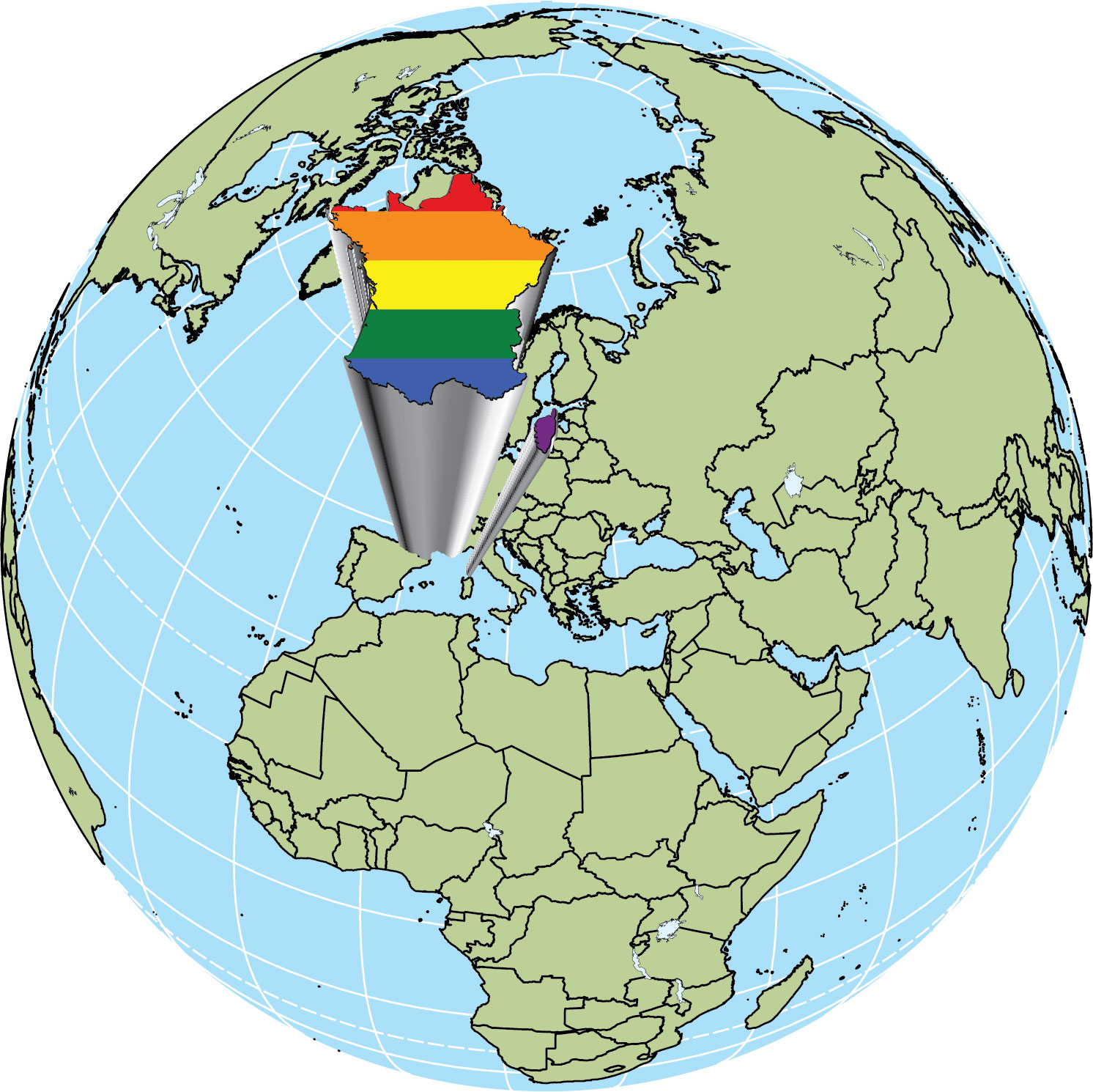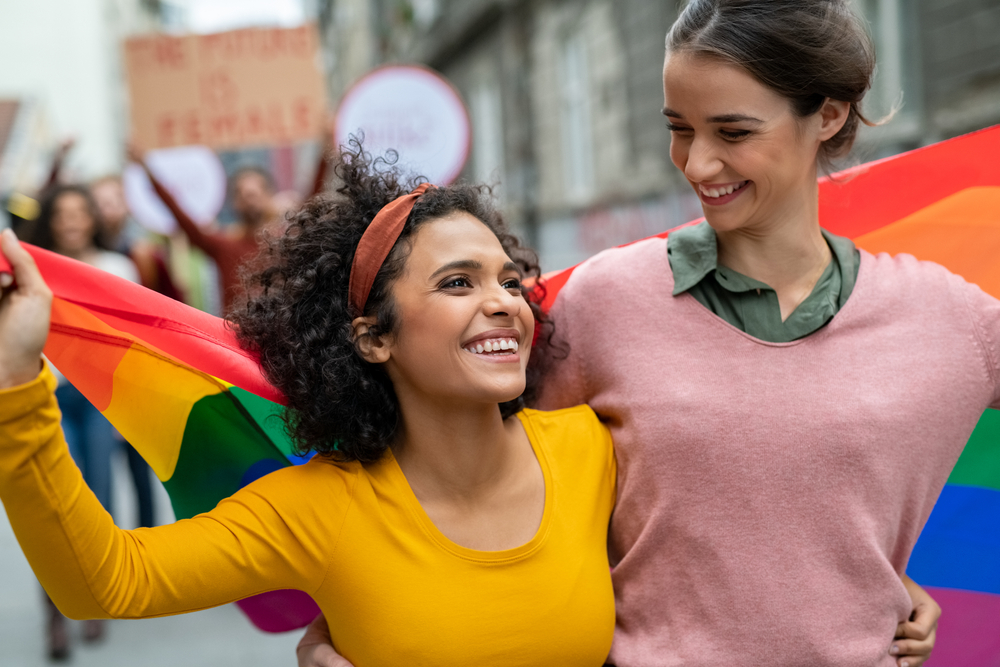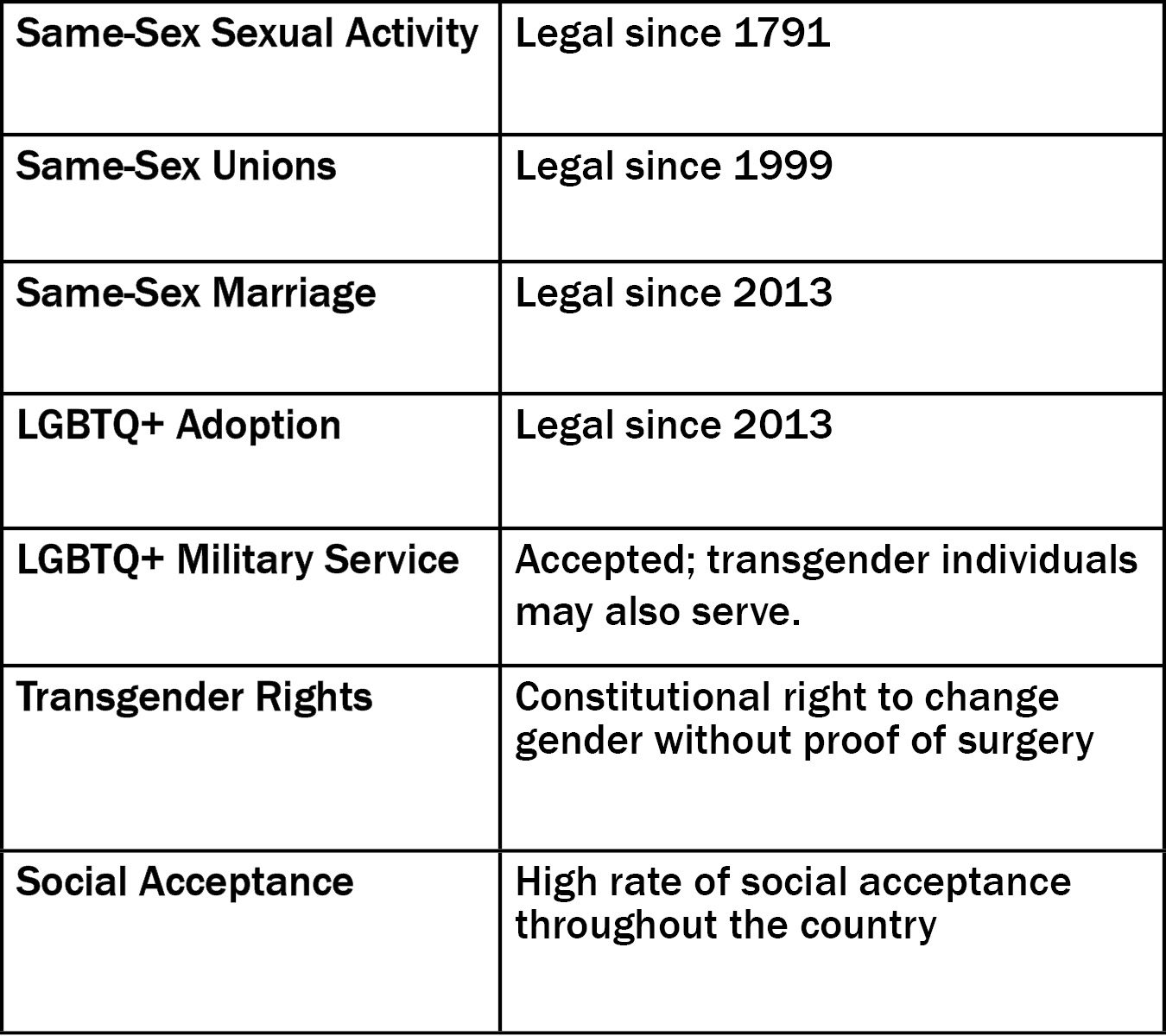LGBTQ: Legal and Cultural Status
Over the past few years, the LGBTQ+ community has been the beneficiary of a marked shift in global public opinion, with movement towards greater cultural acceptance and enhanced legal status. Nevertheless, views are not uniform across all countries.
In the most progressive countries, members of the LGBTQ+ community enjoy cultural acceptance, social freedoms, and full legal status. In the most restrictive countries, identifying as LGBTQ+ or engaging in same-sex acts is punishable by jail or death.
When preparing to travel abroad as a tourist or for business, members of the LGBTQ+ community should thoroughly research country-specific legal, cultural, and security issues prior to departure.
Understanding where a destination country falls on the spectrum of acceptance allows LGBTQ+ individuals to decide whether to travel to a given destination and to understand how to conduct themselves safely when they arrive.
Legal Facts
Same-Sex Sexual Activity
Same-sex sexual activity was effectively legalized by France in 1791 when all laws against sodomy were repealed following the French Revolution. However, these laws did not end the social and legal harassment of LGBTQ+ individuals.
Same-Sex Unions
In 1999, the French Parliament approved domestic partnerships between same-sex couples which offered some rights and responsibilities. Known as civil solidarity pacts or PACS, these unions were not as legally significant as marriage.
Same-Sex Marriage
France was the thirteenth country in the world to legalize gay marriage, doing so in 2013. The law responsible for this, Law 2013-404, has been nicknamed the Taubira Law, in reference to the bill’s original sponsor, Justice Minister Christine Taubira. The law criminalizes the act of denying a marriage license to same-sex couples based solely on their sexual orientation or gender expression. A prison sentence of up to five years can be levied against someone found guilty of withholding marriage licenses.
Adoption
Law 2013-404, the Taubira Law, was also responsible for opening a pathway for adoption to married same-sex couples. After being signed in 2013, the first same-sex adoption took place that year.
Military Service
The French Armed Services allow openly gay, bisexual, and transgender individuals to serve in the military.
Gender Identity Laws
In November of 2016 the French Parliament passed law 2017-1547 which, among other things, allowed for transgender individuals to legally change their gender without the need to prove gender-reassignment surgery.
Anti-Discrimination Laws
According to French labor law, it is unlawful for employers to deny opportunities to applicants and employees on the basis of sexual or gender identity. All forms of anti-gay discrimination are unlawful throughout the country. The French Equal Opportunities and Anti-Discrimination Commission, known locally as HALDE, is a 12-member committee that has the power to investigate instances of discrimination and use their findings to propose to the French Parliament new laws and updates to existing laws.
Cultural Considerations
Public Opinion
Recent surveys show that the majority of French citizens believe that members of the LGBTQ+ community should have the same rights as heterosexuals. France’s progressive legal stance toward the LGBTQ+ community is thus reinforced by broad social acceptance toward LGBTQ+ individuals.
Public Displays of Affection
In France, light public affection among heterosexuals is socially acceptable, and the same is true for LGBTQ+ individuals. Aggressive public displays of affection are considered inappropriate and are likely to be frowned upon. This is true for heterosexual couples as well as LGBTQ+ couples.
Opinions on Cohabitation
There are no laws against the cohabitation of LGBTQ+ couples in France, and there are no broadly held social stigmas against LGBTQ+ individuals sharing a bedroom. When checking into hotels, Airbnbs, and other types of accommodation in France, LGBTQ+ don’t regularly face discrimination.
Consistency of Opinions
While France is broadly progressive, it is important to consider that attitudes may not be uniform across an entire country. LGBTQ+ individuals may have different experiences when traveling to different parts of France. Individuals of diverse lifestyles tend to cluster in major cities, while rural locations within the same country might have very different attitudes towards gender and sexual expression.
Article written for World Trade Press by Taylor Holloran.
Copyright © 1993—2025 World Trade Press. All rights reserved.

 France
France 


